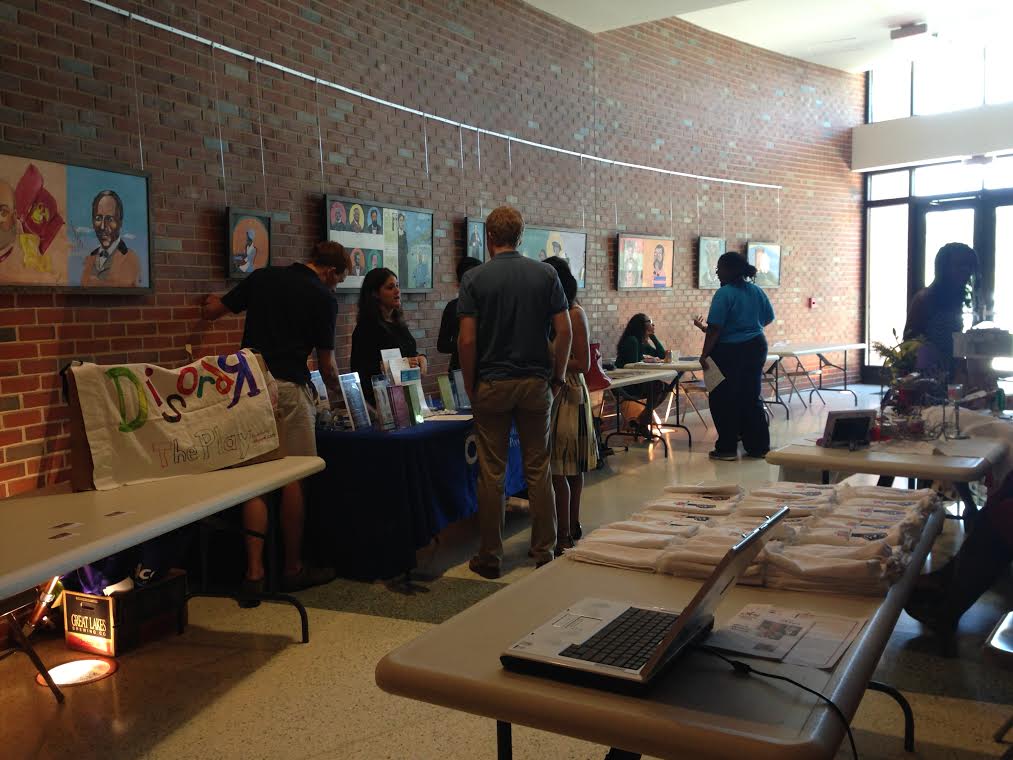Dozens of community members, advocates, and mental health professionals gathered at historic St. Elizabeth’s Hospital on a Saturday morning in July, determined to fight mental illness by developing resources and communicating about them to those in need of services.
The day-long conference, organized by the National Alliance on Mental Illness (NAMI), was one of many D.C. events scheduled during National Minority Mental Health Awareness Month (occurring every July). It was a day of panels, discussions, exhibitions and speakers; participants were encouraged to think collaboratively when considering solutions to mental illness.
Panelists discussed resources for improving public access to counseling and treatment, as well as methods for spreading awareness about regional minority mental health conditions and challenges.
“Your community does not only include where you live at, but also where you come from and where you may be going,” Health and Wellness Advocate Obinna Ugorji told the audience.
Ugorji emphasized the need to address mental health conditions from the home, and implored audience members to encourage and engage struggling family members or friends. She suggested inviting afflicted loved ones to outings, such as picnics or church services, or offering to accompany and assist them in their daily activities.
Following Ugorji’s remarks, Vicki Johnson, Board Chair of the American Foundation for Suicide Prevention, addressed the importance of anonymity in screenings for mental illness. According to Johnson, anonymous screenings help assess and treat at-risk patients while also protecting them from stigmas associated with mental illness. They offer an accommodating alternative to individuals who might otherwise be deterred from seeking help due to fear of judgment, social exclusion, or ridicule.
Other panelists reminded the audience that anonymous services are temporary solutions, sufficing only until the real balm of social support can be applied. Activists and advocates of the communal approach hope to combat misunderstandings regarding mental illness by increasing public exposure to the symptoms, consequences, and reality of mental health afflictions. They aim to create a sense of togetherness around treatment.
Hilary Kacser, a local actress who manned an exhibition booth, is a proponent of the latter method of response. Operating under a grant from the D.C. Commission on the Arts and Humanities, Kacser performs an original one-woman show representing a woman’s journey to overcome compulsive hoarding. Kacser drew on her experiences with her own hoarding tendencies to write the play. By presenting the mental condition in a fictionalized, dramatic, and relatable form, Kacser seeks to engage the public, spur conversations, and facilitate productive social solution-seeking.
Stationed at a booth near Kacser was Wallace Kirby, a community organizer for University Legal Services (ULS). Kirby engaged community members who stopped at his booth in discussions about the services that ULS offers as a protection and advocacy agency in D.C.
Like Kacser, Kirby is working to build community around supporting the mentally ill, but his advocacy has a different form. ULS works through more formal avenues to identify maltreatment concerns among individuals with mental health conditions but lacking social support, such as within D.C.’s incarcerated population. The organization then writes reports, petitions, and recommendations advocating for the fair treatment of these individuals under the law.
Throughout the day, individuals like Kacser and Kirby had the opportunity to network with other activists and professionals, swapping tools, tips, stories, and upcoming opportunities for engagement. As one audience member concluded; “[t]o continue to make strides, support from the entire community will be necessary.”





